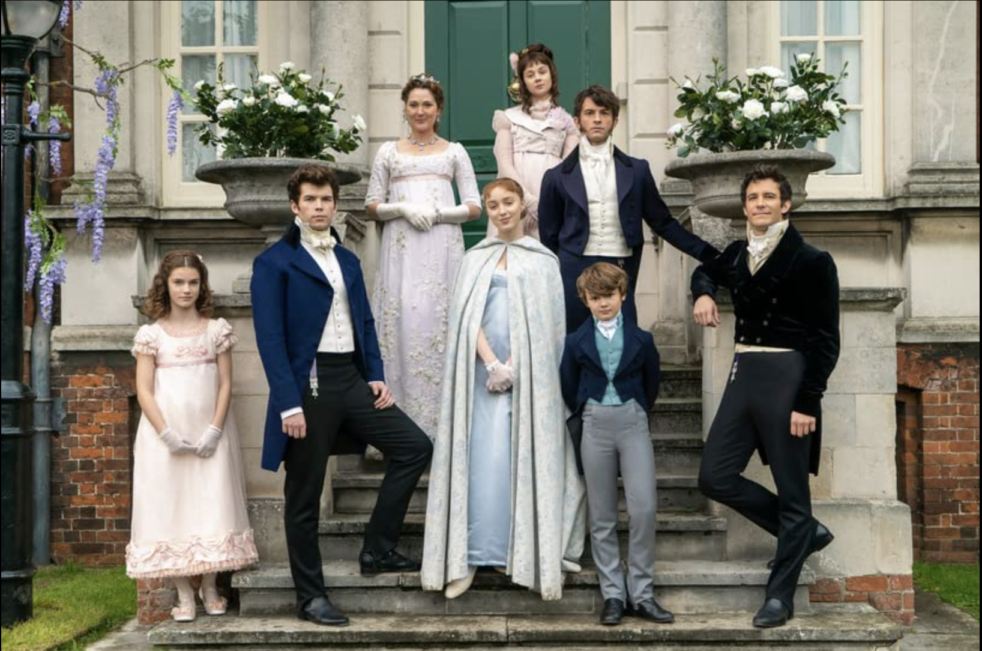Our Take: 4/5 Stars
Set in 1813 in high-society London, Netflix’s latest hit series “Bridgerton” has all the appeal of a Jane Austen novel.
Flowing ball gowns, rampant gossip and thrilling romance constitute some of the show’s steamiest and most exciting scenes.
A delightful, and perhaps superficial watch, “Bridgerton’” soapy drama has taken viewers by storm.
Following its release on Dec. 25, the show quickly claimed the top spot in Netflix’s Top Ten List and has already become the streaming service’s fifth most watched original series with over 63 million household views.
“Bridgerton” follows Daphne Bridgerton (Phoebe Dynevor, “Younger”).
She is a young aristocrat making her debut in London’s highest social circles seeking a suitor to marry.
Amongst competing young women, she must seal her position as the most beautiful, charming of the debutantes to find the best man to wed.
Considering the well-known premise, the show has gained popularity primarily due to its opulent aesthetics and charm. Production designers carefully crafted designer gowns and costumes, rolling gardens and extravagant events.
Women joke about wearing the same dress twice like it is a cardinal offense. Dowries are an expected custom in marriage.
Violin covers of pop music, like Ariana Grande’s “Thank U, Next” and Taylor Swift’s “Wildest Dreams” juxtapose with historic settings and outdated customs.
Yet the show’s plot fails to live up to the grandiose settings of its scenes.
As she seeks suitors throughout her debut season, naturally, Daphne has questions.
Should she marry for love or rank? Is the purpose of marriage solely to have children and extend the bloodline? This moral dilemma has been the focus of many a tale and is hardly groundbreaking.
Throughout the season, it becomes clear that “Bridgerton” only takes about an episode or two to address these important thematic questions, while stretching out gossip-related side drama for multiple episode arcs.
The show lacks character development in this sense, constantly valuing exciting and dramatic scenes over a consistent storyline.
In the big picture, the show appears to lack cohesion, and the audience takeaway is the petty drama that occurs between high society women sipping their tea.
Although, what “Bridgerton” lacks in character development it compensates for in satire.
Obviously, the premise of the show is a feminist disaster — there are set expectations for Daphne and fellow debutantes must follow in order to “secure” a suitor of the highest rank possible.
Young women must be delicate and slim, clever but not too well read so not to “confuse [their] thoughts,” as one woman said to her daughter, and virtuously reserved.
And indeed, Daphne reflects the standards that weigh down on her as she sets off on her societally obligated search for a husband, she proves to be a clever conversationalist yet she only learns what sex is right before she leaves her home to live with her husband.
Presumably, this fallacy shows the stigmas of the 19th century era and how far society has since ascended in sex education.
More importantly, the show points out how far society still needs to go.
